As Yale’s 23rd president, Salovey has led the university toward a vision of unity, accessibility, innovation, and excellence.
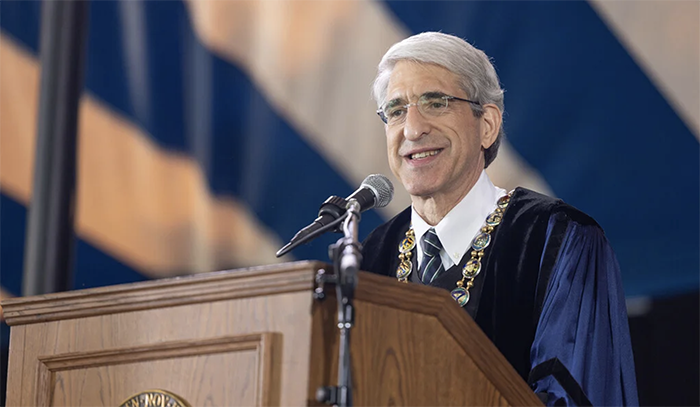
As President Peter Salovey prepares to return to the faculty this summer, a Yale News series explores the university’s evolution since his tenure began in 2013, its momentum and continued progress, and Salovey’s enduring commitment to the university and to New Haven.
Empowering students and faculty to bring innovative ideas into the world
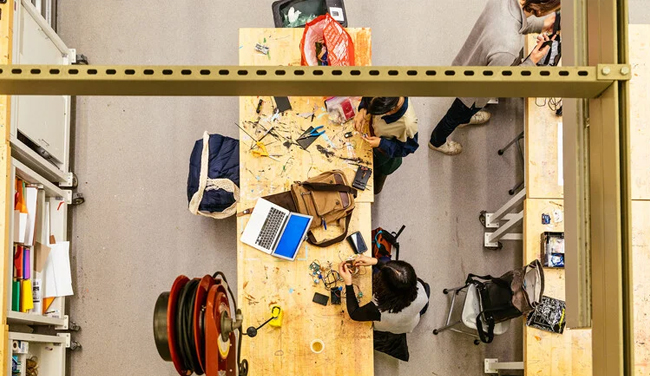
Since the earliest days of his presidency, Peter Salovey has emphasized the importance of helping students and faculty bring their ideas into the world and to bear on global challenges. And his tenure has been marked by investments toward that goal.
Over the past decade, under President Salovey, Yale has launched innovation and entrepreneurship spaces like the Tsai Center for Innovative Thinking and Yale Ventures, introduced additional funding for innovators, strengthened connections across departments and to industry, and deepened investment in the sciences and engineering.
This growing culture of innovation has also helped spawn dozens of new startups, including over two dozen in New Haven in just the last five years as well as over 70 faculty-led ventures in Connecticut.
“At Yale, we are committed to supporting our faculty and student entrepreneurs in tackling the most critical challenges facing humankind,” said Salovey. “By nurturing connections across campus and fostering integrative approaches, we help create new approaches and technologies that can benefit the world, all while building partnerships with New Haven and creating new opportunities for our wider community.”
Inspiration and collaboration: Reimagining Yale science
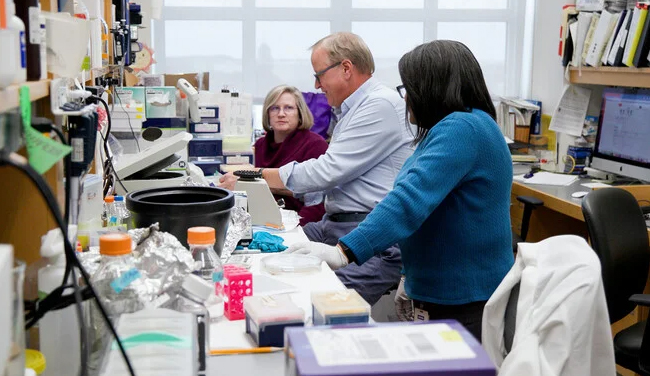
A decade of investment and leadership has led to a science renaissance across campus.
Yale’s scientific endeavors during President Salovey’s stewardship have been stunningly comprehensive. From Science Hill to 100 College Street, Yale School of Medicine to West Campus, Yale scientists are doing field-leading work in planetary solutions, neuroscience, and quantum science and engineering. And a series of planned projects in the coming years will transform the Yale School of Engineering & Applied Science and the Yale School of Public Health.
It is a legacy that includes new, state-of-the-art spaces to conduct science and investments that hasten scientific breakthroughs in areas of greatest urgency and potential impact.
“Science at Yale is a university-wide endeavor — encompassing the Schools of Medicine, Nursing, and Public Health, the School of the Environment, the School of Engineering & Applied Science, the Faculty of Arts and Sciences, and beyond,” said Salovey. “Our investment in the sciences reflects its fundamental role in understanding the world around us and meeting the most difficult challenges that face us.”
Creating global impact through Yale’s data-driven social sciences
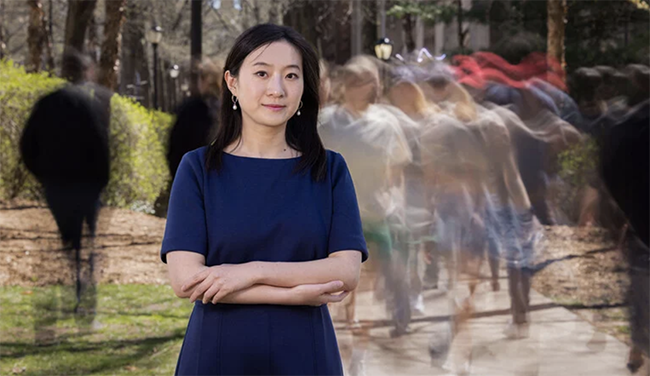
Under President Salovey’s leadership, Yale has launched bold initiatives and built key infrastructure to create a collaborative campus environment for data-driven social science that is being used to guide domestic policy, address climate change and other pressing global challenges, and which seeks to understand human cognition, values, and behavior.
The university also has strengthened the social science faculty by hiring top-flight scholars, many of whom have taken on leadership roles at the university. It has enhanced social-science education by transforming the Department of Statistics into the Department of Statistics and Data Science and establishing a major in economics and computer science to teach undergraduates the skills needed to harness data for a better understanding of the world.
“Social science research has the potential to shape policy and effect change on a global scale,” said Salovey, a distinguished psychologist who will return to social science research and teaching when he steps down at the end of the academic year. “That requires bringing together deep expertise on data, on theory, and on policy, facilitating collaboration, convening leaders and guiding important conversations, and pursuing insights into human relationships and society.
“At Yale, we are committed to leading the way in this field, to understand urgent global challenges and increase knowledge, without partisanship or ideology.”
Building on Yale’s strength: adding new depth and breadth to the humanities

During Peter Salovey’s presidency, the university’s commitment to the humanities has brought faculty expansion and new spaces and resources.
As part of that commitment, the university has dramatically expanded ladder faculty across the arts and humanities, building on existing strengths and stretching into new areas of contemporary relevance. A major renovation and expansion of the Humanities Quadrangle, formerly the Hall of Graduate Studies, brought together 15 previously scattered departments, inviting new connections and scholarship across disciplines. Other major projects, including some now in the planning stages and some already underway, reflect a commitment to the humanities through teaching and public outreach, practice, and production.
“Yale has long been recognized for its strength in the humanities,” said Salovey. “By continuing to build on that strength, we affirm the importance of these studies in facing global challenges — to understand the world and human experience in all its complexity, to bring together perspectives from across disciplines, and to explore ways to improve the future by comprehending the past.”
Opening doors and making room: ‘Yale was a possibility for me’
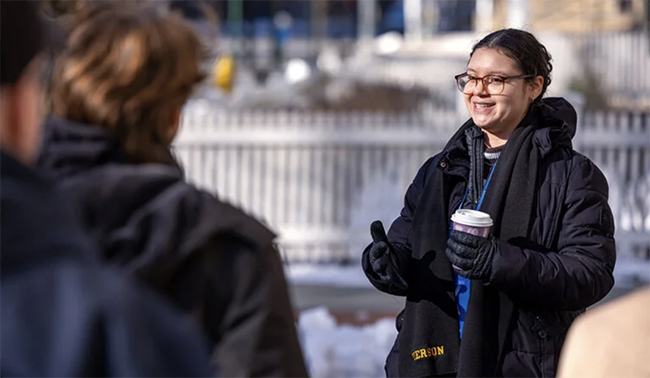
Over the past decade, Yale has invested widely to ensure that cost does not stand in the way of enrollment for any student.
Achieving a more accessible and more excellent university was a central piece of the vision articulated by President Salovey when he took office in 2013, and Yale has invested widely to ensure that cost does not stand in the way of enrollment for any student, regardless of socioeconomic status.
In turn, many people across and beyond campus — in undergraduate admissions, the graduate and professional schools, applicant outreach, and enrolled-student resources, as well as among generous alumni and friends — have also helped turn that vision into reality.
“Yale is committed to educating the most promising students, of all socioeconomic backgrounds, who will become leaders in their fields and contribute greatly to the nation and world,” said Salovey. “More than ever before, we welcome excellent students from every walk of life and ensure that they have opportunities to thrive once they are on campus.”
Yale President Peter Salovey to return to faculty full time in 2024

At the end of August Peter Salovey announced that this academic year will be his last as Yale’s 23rd president, and that he will return to the faculty full time after 11 transformative years as head of the university. Since he took office in 2013, Yale has made significant strides toward the vision he articulated upon his appointment as president — a vision he has continually reinforced of “a more unified Yale, a more accessible Yale, a more innovative Yale, and an even more excellent Yale.”
In his 2013 inaugural address, Salovey ’86 Ph.D. set the context and tone for the work that was to come. “We are living in a world that will test our university, and we must remain rooted in our principles and focused on our founding mission,” he said. “We must be clear-eyed about our strengths and weaknesses, and ambitious in fulfilling our promise.”
The years since have been marked by sustained progress in service of these aspirations.